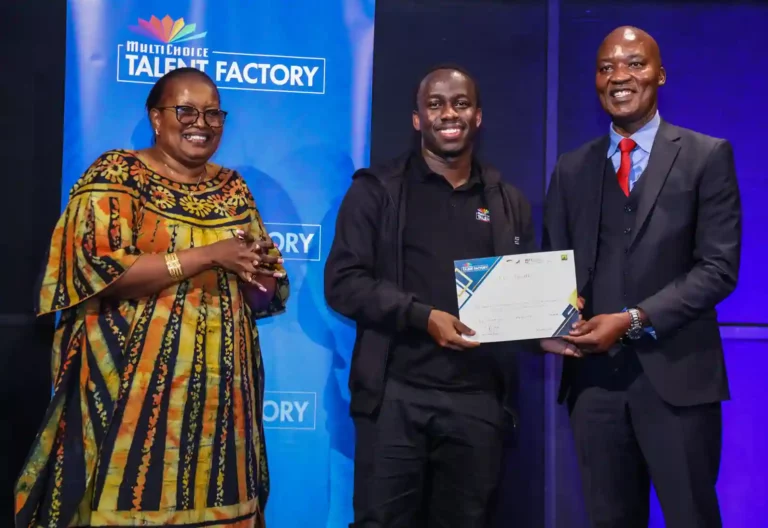In a significant move to address the pervasive issue of sexual harassment and abuse in the Kenyan film industry, MultiChoice Talent Factory, Deutsche Gesellschaft für Internationale Zusammenarbeit (GIZ), and the Kenya Film Commission jointly hosted a two-day Masterclass on Intimacy Coordination and Safety on Production Sets.
The workshop, held on October 1st and 2nd, brought together over 100 industry stakeholders to discuss critical safety challenges faced in productions involving intimate scenes.
Call for a Safer and More Respectful Working Environment
MTF Eastern Africa Academy Director Victoria Goro emphasized the need for a safer and more respectful working environment for actors and crew members. She highlighted a survey that revealed the alarming prevalence of sexual harassment within the Kenyan film industry, underscoring the urgency of addressing this issue.
“Given the significant number of young women pursuing careers in the film industry, it was imperative to initiate a dialogue on safety and well-being on set,” Goro stated. “This masterclass provided a platform for industry professionals to learn best practices, foster a culture of respect, and ensure that intimate scenes are filmed ethically and safely.”
Industry Leaders Commit to Positive Change
GIZ Country Director Bodo Immink expressed his satisfaction with the collaboration, noting that the masterclass had successfully raised awareness about critical safety issues and generated valuable insights.
“By bringing together industry professionals, we have not only raised awareness about critical safety issues but also generated valuable insights and actionable steps. Moving forward, we aim to continue collaborating with all stakeholders to implement these recommendations and ensure lasting positive change in the film industry.”
Kenya Film Commission CEO Timothy Owase underscored the commission’s commitment to advancing professionalism within the industry. He highlighted the often-overlooked issue of intimacy coordination and emphasized the need to empower young professionals with the necessary skills to navigate sensitive storytelling with respect and sensitivity.
By providing industry professionals with the knowledge and tools to create safer and more respectful working environments, the initiative aims to contribute to a more positive and inclusive film industry.
Addressing the Root Causes of Sexual Harassment
The World Health Organization defines sexual harassment and abuse as a range of acts, including physical intrusion, coercion, and exploitation.
In the context of the film industry, victims often face threats to their careers, making it difficult to speak out against their abusers.
The power dynamics at play, with producers and directors holding significant influence over aspiring actors, create an environment ripe for exploitation. Despite the legal framework provided by the Sexual Offences Act and the Employment Act, many victims remain hesitant to report their experiences due to fear of retaliation or disbelief.
The consequences of sexual harassment and abuse extend beyond individual trauma. They undermine the industry’s reputation, deter aspiring talent, and perpetuate a toxic work environment. Addressing this issue requires a collective effort from all stakeholders to create a safer and more equitable film industry.
How Next Narrative Africa Fund Aims to Transform African Storytelling




